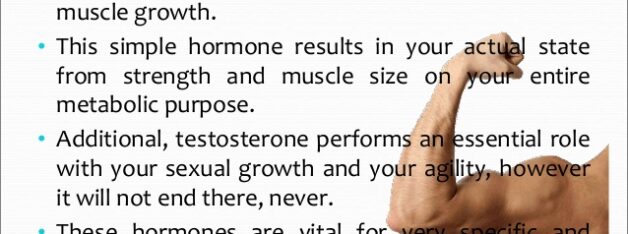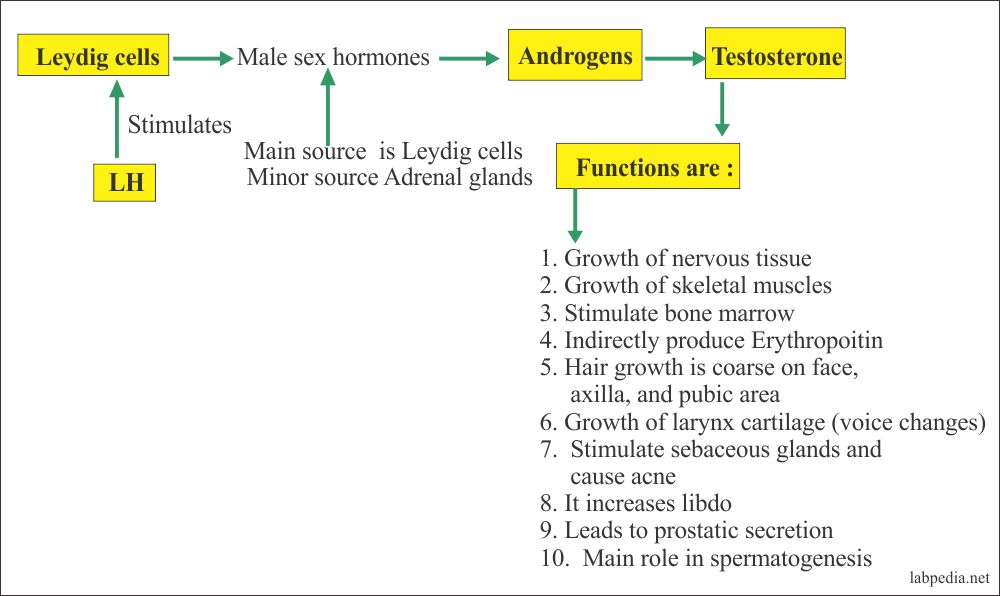Testosterone: Functions

Testosterone is a hormone that has many important functions in the body.
First, it is an anabolic hormone, meaning it promotes the growth of bone and muscle tissue as well as serving to maintain the health of reproductive organs such as the penis and prostate.
Second, testosterone is a metabolic substance that controls other hormones such as estrogen and is key to the production of sperm.
And third, testosterone is an anabolic androgenic hormone that is responsible for maintaining bone mass and muscle mass and is critical in the recovery and repair of muscle tissue after physical injury.
As you can see, there are many different functions that testosterone plays in the body.
It is vital for men to produce and maintain high levels of testosterone, which is why men are at a greater risk of developing…
- Androgynous sexual disorders
- Low sperm counts
- Decreased production of muscle
- Bone Tissue
- Decreased muscle and bone strength
- And decreased libido.
Testosterone deficiencies can have a devastating effect on a man’s sex and reproductive health.
To compensate for these deficiencies, men have developed products to artificially boost testosterone in the body.
However, while these supplements may help a man to some extent, they do not address many of the deficiencies.
Most of the testosterone deficiencies are caused by the low bioavailability of testosterone.
Low bio-availability means that the testosterone gets eliminated from the body before it can perform its functions.
This means that the body must rely on external sources for the production and release of testosterone, and this can be very difficult.
Some supplements may help to improve the body’s bioavailability of testosterone, but they also contain contaminants that can further compromise the body’s bioavailability of testosterone.

Some supplements may include artificial ingredients and chemicals, synthetic hormones, and other chemical contaminants that can interfere with the production and release of testosterone.
Another way that testosterone supplements can interfere with the androgenic properties of the body is through their use in men who have hypogonadism.
This means that the body produces too much testosterone or lacks the ability to produce testosterone at all.
These supplements may temporarily increase the testosterone levels of a hypogonadism patient, but once the effects of the medication wear off, these levels will usually decrease again – https://steroideapotheke.com/roidstation-com-alternative-2020/.
This can be frustrating for a person trying to treat his or her condition with testosterone deficiency and can also lead to harmful side effects.
A third way that testosterone supplements can interfere with the body’s ability to naturally balance testosterone production and release is through their use in a person suffering from Andropause.
As men go through the process of aging, the amount of testosterone produced and stored in the body gradually decreases.
Testosterone deficiency symptoms in older men are usually depression, decreased sex drive, loss of muscle mass, decreased energy levels, and hot flashes.
While testosterone replacement therapy can sometimes help relieve these symptoms of Andropause, these supplements can actually stimulate the production of testosterone and thus increase these symptoms even more.
There are some drawbacks to taking testosterone supplementation.
Most notably, because testosterone is an anabolic hormone, it requires an anabolic environment to be released and does not easily fit into a diet or lifestyle.
For this reason, it is much more commonly used as a dietary supplement than a topical one.
Moreover, testosterone is made by the liver, so any problems with this organ could lead to other serious health issues.
While there are many benefits to testosterone, its use should be carefully considered and used as directed.
Be the First to comment.

Testosterone is a hormone that has many important functions in the body.
First, it is an anabolic hormone, meaning it promotes the growth of bone and muscle tissue as well as serving to maintain the health of reproductive organs such as the penis and prostate.
Second, testosterone is a metabolic substance that controls other hormones such as estrogen and is key to the production of sperm.
And third, testosterone is an anabolic androgenic hormone that is responsible for maintaining bone mass and muscle mass and is critical in the recovery and repair of muscle tissue after physical injury.
As you can see, there are many different functions that testosterone plays in the body.
It is vital for men to produce and maintain high levels of testosterone, which is why men are at a greater risk of developing…
- Androgynous sexual disorders
- Low sperm counts
- Decreased production of muscle
- Bone Tissue
- Decreased muscle and bone strength
- And decreased libido.
Testosterone deficiencies can have a devastating effect on a man’s sex and reproductive health.
To compensate for these deficiencies, men have developed products to artificially boost testosterone in the body.
However, while these supplements may help a man to some extent, they do not address many of the deficiencies.
Most of the testosterone deficiencies are caused by the low bioavailability of testosterone.
Low bio-availability means that the testosterone gets eliminated from the body before it can perform its functions.
This means that the body must rely on external sources for the production and release of testosterone, and this can be very difficult.
Some supplements may help to improve the body’s bioavailability of testosterone, but they also contain contaminants that can further compromise the body’s bioavailability of testosterone.

Some supplements may include artificial ingredients and chemicals, synthetic hormones, and other chemical contaminants that can interfere with the production and release of testosterone.
Another way that testosterone supplements can interfere with the androgenic properties of the body is through their use in men who have hypogonadism.
This means that the body produces too much testosterone or lacks the ability to produce testosterone at all.
These supplements may temporarily increase the testosterone levels of a hypogonadism patient, but once the effects of the medication wear off, these levels will usually decrease again – https://steroideapotheke.com/roidstation-com-alternative-2020/.
This can be frustrating for a person trying to treat his or her condition with testosterone deficiency and can also lead to harmful side effects.
A third way that testosterone supplements can interfere with the body’s ability to naturally balance testosterone production and release is through their use in a person suffering from Andropause.
As men go through the process of aging, the amount of testosterone produced and stored in the body gradually decreases.
Testosterone deficiency symptoms in older men are usually depression, decreased sex drive, loss of muscle mass, decreased energy levels, and hot flashes.
While testosterone replacement therapy can sometimes help relieve these symptoms of Andropause, these supplements can actually stimulate the production of testosterone and thus increase these symptoms even more.
There are some drawbacks to taking testosterone supplementation.
Most notably, because testosterone is an anabolic hormone, it requires an anabolic environment to be released and does not easily fit into a diet or lifestyle.
For this reason, it is much more commonly used as a dietary supplement than a topical one.
Moreover, testosterone is made by the liver, so any problems with this organ could lead to other serious health issues.
While there are many benefits to testosterone, its use should be carefully considered and used as directed.
